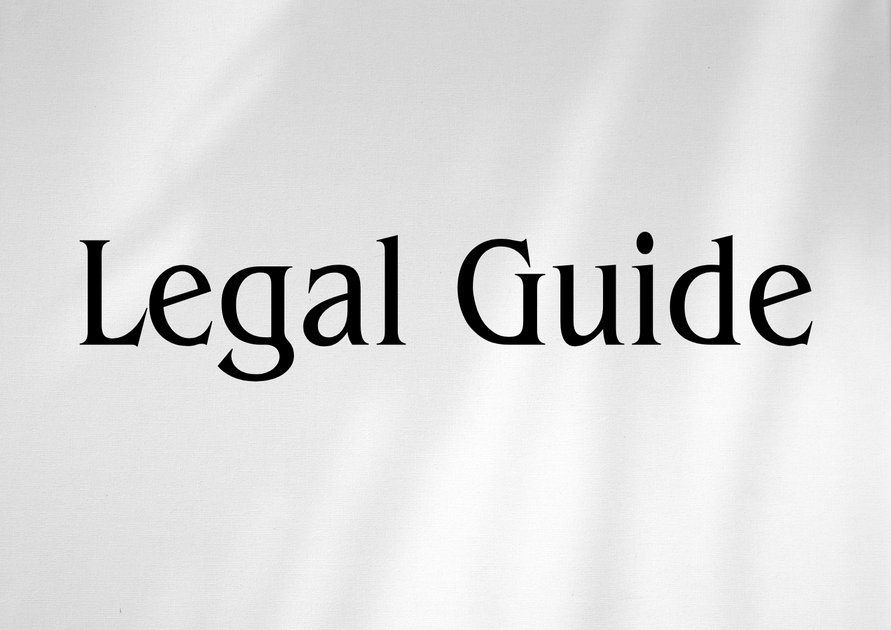Introduction: Navigating the Landscape of Non-Disclosure Agreements in Saudi Business Law
As the economic collaboration between the UAE and Saudi Arabia intensifies under the GCC economic framework, the strategic management of confidential business information gains paramount importance. Non-Disclosure Agreements (NDAs) have emerged as essential instruments for safeguarding proprietary data, trade secrets, and business strategies, especially in cross-border transactions and partnerships. With the rapid evolution of Saudi business law—underscored by Vision 2030 and recent regulatory reforms—UAE-based businesses operating or partnering in Saudi Arabia must understand the nuanced legal environment surrounding NDAs. This article provides a comprehensive legal analysis of NDAs in the Saudi context, offering actionable consultancy insights for UAE companies, HR professionals, executives, and legal practitioners seeking robust compliance and risk mitigation strategies.
Recent Saudi business law updates reflect a concerted effort to enhance investor protection and align with international best practices. For UAE enterprises, this means revisiting confidentiality mechanisms, aligning NDAs with local legal requirements, and proactively managing regulatory risk. This article draws on official Saudi and UAE legal sources to deliver professional recommendations and real-world examples tailored to the Gulf business landscape.
Table of Contents
- Overview of Non-Disclosure Agreements under Saudi Business Law
- Legal Framework: Regulations Governing NDAs in Saudi Arabia
- Key Provisions and Drafting Considerations for NDAs
- Comparative Analysis: Saudi and UAE NDA Regulations
- Enforceability and Dispute Resolution
- Risks of Non-Compliance and Mitigation Strategies
- Case Studies and Hypothetical Scenarios
- Compliance Checklist for Organizations
- Conclusion: Best Practices and Strategic Recommendations
Overview of Non-Disclosure Agreements under Saudi Business Law
Non-Disclosure Agreements (NDAs) are contractual arrangements that obligate parties to maintain the confidentiality of shared information. In the Saudi context, NDAs have become increasingly prevalent, not only in mergers, acquisitions, and joint ventures, but also in vendor partnerships, intellectual property transactions, and employment relationships. Saudi business culture is rapidly shifting toward the formalization of confidentiality protections, reflecting global standards and investor expectations.
For UAE businesses expanding into the Saudi market or collaborating with Saudi entities, NDAs serve as the first line of defense in protecting sensitive information. However, the effectiveness of these agreements hinges on their alignment with Saudi legal requirements—especially considering the unique nuances in Saudi contract law, penal codes, and enforcement forums.
Legal Framework: Regulations Governing NDAs in Saudi Arabia
Contract Law: Saudi Civil Code and Its Application to NDAs
Saudi Arabia’s Civil Code (enacted by Royal Decree No. M/191 of 2023) governs civil obligations, contract formation, and enforceability. NDAs are recognized as binding contracts so long as they comply with the general requirements of contract law: mutual consent, a lawful object, and specification of consideration (where applicable). Under articles pertaining to contracts, clauses that violate Sharia principles or public policy are void—making careful drafting essential.
Intellectual Property Protection and Trade Secrets
The Saudi Arabian Intellectual Property Authority (SAIP) administers key regulations such as the Trade Secret Protection Law (Royal Decree No. M/59 of 2005) and related executive regulations. These statutes define trade secrets and outline civil and criminal penalties for misappropriation. NDAs are integral to demonstrating that a business took “reasonable efforts” to protect its confidential information, an evidentiary requirement under Saudi law.
Labor Law Considerations
The Saudi Labor Law (as amended by Royal Decree No. M/46 of 2021) permits employers to require employees to sign NDAs as part of their employment contracts. Confidentiality clauses, however, must be clear, reasonable in scope, and not unduly restrict employees’ rights under labor law.
Judicial Interpretation and Arbitration
Saudi courts and arbitral tribunals will enforce NDAs if their terms are clear, reasonable, and compliant with public policy. With the adoption of the Saudi Arbitration Law (Royal Decree No. M/34 of 2012), parties may also agree to resolve NDA breaches through arbitration—improving enforceability for cross-border business disputes.
Key Provisions and Drafting Considerations for NDAs
1. Definition of Confidential Information
An NDA should precisely define “confidential information,” specifying what is included and excluded. General and vague definitions may be interpreted narrowly by Saudi courts, potentially limiting protection. Common inclusions are business plans, financial data, customer lists, technical files, and proprietary methodologies.
2. Obligations of Receiving Party
NDAs must stipulate the receiving party’s duties: non-disclosure, restricted use, and obligations to protect information from unauthorized access. Saudi law requires evidence that such responsibilities were clearly communicated and accepted.
3. Duration and Termination
The NDA should state a specific duration. Per Saudi contract law, indefinite or excessive periods may be declared unenforceable if deemed unreasonable or contrary to public policy. Standard practice is to align the duration with the commercial lifecycle of the protected information.
4. Remedies and Penalties for Breach
Remedies can include injunctions, damages, and contractual penalties (liquidated damages). While Saudi courts generally respect well-drafted penalty clauses, they may adjust the quantum if found excessive or punitive. Parties should rely on evidence of actual loss and reasonableness in quantum.
5. Governing Law and Jurisdiction
Cross-border NDAs involving UAE and Saudi parties should state the applicable law and dispute forum. Note, however, that Saudi courts may assert jurisdiction if the NDA relates to performance within Saudi Arabia, or concerns Saudi-registered entities.
6. Exceptions and Carve-Outs
Typical exceptions to confidentiality include information already in public domain, required disclosures by law, and information independently developed without reference to the disclosing party’s data. Overbroad exceptions can weaken NDA enforceability.
Comparative Analysis: Saudi and UAE NDA Regulations
Understanding the alignment and divergence between Saudi and UAE confidentiality laws is vital for organizations with dual operations.
| Aspect | Saudi Arabia | UAE |
|---|---|---|
| Primary Law | Civil Code (Royal Decree No. M/191 of 2023), Trade Secret Protection Law | UAE Civil Transactions Law (Federal Law No. 5 of 1985, as amended), UAE Penal Code |
| Recognized as Contract? | Yes, if terms comply with Sharia and public policy | Yes, with binding force under civil contract law |
| Explicit IP Statute? | Trade Secret Protection Law | Federal Law No. 11 of 2021 (Regulation and Protection of Industrial Property Rights), Penal Code articles |
| Employee NDA Validity | Permissible, not to impede basic labor rights | Permissible, subject to reasonableness and UAE Labour Law |
| Penalties for Breach | Contractual damages, possible criminal sanctions | Contractual damages and, in some cases, criminal penalties |
| Governing Law/Forum | Saudi courts/arbitration—Saudi law prevails for local issues | Flexible—parties can opt for UAE law, DIFC/ADGM arbitration, etc. |
Visual suggestion: Place a color-coded infographic highlighting the similarities and differences for quick visual reference.
Enforceability and Dispute Resolution
Saudi Courts’ Approach to NDAs
Saudi courts uphold NDAs where they meet the formal requirements of contract law and are not inconsistent with Sharia principles. The court will examine:
- Clarity and specificity of the NDA clauses
- Whether the agreement covers information recognized as confidential under law
- The proportionality and fairness of any specified remedies or penalties
- Evidence of damage or actual misuse
Any contractual clause violating public policy or imposing unlawful penalties may be disregarded. The Saudi judiciary prioritizes the equity of obligations and the avoidance of punitive damages outside actual harm proved.
Enforcement via Arbitration
The Saudi Arbitration Law enables parties to refer NDA disputes to arbitration, including international tribunals. This is especially salient for cross-border business arrangements where confidentiality obligations span multiple jurisdictions. Arbitration awards are enforceable in Saudi Arabia, subject to limited procedural exceptions.
Recognition of Foreign Judgments
Foreign judgments and arbitral awards related to NDAs may be recognized in Saudi Arabia under international treaties (such as the New York Convention, to which Saudi Arabia is a party). However, enforcement is subject to compliance with national procedural law and public policy review.
Risks of Non-Compliance and Mitigation Strategies
Potential Risks for Organizations
- Loss of Confidential Information: Unenforceable NDAs may expose a business to the unauthorized disclosure of trade secrets, resulting in competitive and reputational harm.
- Legal Liability: Breaching party and, in some cases, complicit employees or executives may face contractual damages claims and regulatory penalties.
- Regulatory Sanctions: Failure to demonstrate proper information protection efforts may increase exposure under trade secret laws and other sector regulations (notably in government, healthcare, and finance sectors).
- Cross-Border Discrepancies: Variations between Saudi and UAE contract law may cause uncertainty in enforcement and forum selection for NDAs affecting operations in both jurisdictions.
Compliance Strategies
| Best Practice | Practical Implementation |
|---|---|
| Custom-Tailor NDA Language | Draft NDAs to reflect both Saudi law and UAE best practice for dual-jurisdiction applicability. Avoid templates relying solely on international models. |
| Clarity and Specificity | Define confidential information in detail and list permitted disclosures explicitly. |
| Reasonable Durations | Align NDA terms with the business use or significance cycle of protected information. |
| Proportional Penalties | Fix contractual damages based on likely actual loss, providing courts with a credible basis for enforcement. |
| Employee Awareness & Training | Incorporate confidentiality training and secure written employee undertakings as a compliance audit trail. |
| Monitor and Review | Regularly review NDAs and update documentation in response to legal updates or changes in the business environment. |
Visual suggestion: Insert a compliance checklist infographic for HR/legal teams.
Case Studies and Hypothetical Scenarios
Case Study 1: UAE-Saudi Technology Joint Venture
A UAE-based software company enters a joint venture with a Saudi development partner. The NDA, governed by UAE law and referencing arbitration in the DIFC, is tested when a Saudi employee leaks proprietary algorithms to a third-party vendor. The Saudi partner claims local law prevails given the incident’s location.
Analysis: The claim is substantiated under Saudi Civil Code provisions granting jurisdiction to Saudi courts for contracts partially executed in Saudi Arabia. The NDA’s enforceability depends on its compatibility with both Saudi and UAE law, with arbitration serving as a fallback if the clause is recognized under the Saudi Arbitration Law.
Case Study 2: Employee Post-Employment Disclosure
A multinational with offices in Riyadh and Dubai requires staff to sign cross-border NDAs. A former Saudi-based employee discloses client data after termination. The company sues under both the NDA and the Trade Secret Protection Law.
Outcome: The Saudi court enforces the NDA, citing compliance with labor regulations and specific definition of confidential information. The breach triggers both contractual damages and regulatory sanctions against the ex-employee, demonstrating the value of dual-track enforcement mechanisms.
Hypothetical: NDA in a Cross-Border Procurement Contract
A UAE supplier negotiates a procurement deal with a Saudi client. The NDA requires both parties to keep specifications and pricing confidential. The Saudi party inadvertently discloses data during a government audit.
Strategic Insight: The NDA’s exception for disclosures “required by law” limits the supplier’s recourse. A better practice is to require prompt notice of potential compelled disclosures, allowing the disclosing party to seek protective measures in advance.
Compliance Checklist for Organizations
| Checklist Item | Action Required | Status |
|---|---|---|
| Identify Scope of Confidential Info | Catalog business-sensitive data and customize NDA protection targets | |
| Draft or Review NDAs | Have legal counsel review all NDAs for Saudi and UAE compliance | |
| Employee Onboarding | Integrate NDA execution and training at hiring | |
| Supplier/Vendor Agreements | Extend tailored NDA clauses to third-party contracts | |
| Periodic Review | Set annual compliance audits for NDA effectiveness and legal updates |
Visual suggestion: Embed this checklist as a downloadable resource for legal/HR readers.
Conclusion: Best Practices and Strategic Recommendations
The dynamic regulatory environment in Saudi Arabia demands a proactive and nuanced approach to confidentiality management. As recent amendments continue to align Saudi business law with international standards, UAE companies operating in Saudi or partnering with Saudi firms must embrace rigorous NDA practices that reflect both local law and best-practice compliance.
To position themselves competitively and protect their commercial interests, UAE businesses should:
- Engage qualified legal counsel with cross-jurisdictional expertise to draft and review NDAs.
- Build robust internal training and compliance systems around confidentiality obligations.
- Regularly update NDA templates in response to legal developments, especially as Vision 2030 reforms progress.
- Integrate dispute resolution clauses—arbitration and Saudi forum selection—as appropriate to the commercial context.
- Monitor for regulatory changes through official channels, including the Saudi Ministry of Commerce and Saudi IP Authority.
Adopting these best practices will not only mitigate legal risk but also foster trust with business partners and drive value across the ever-deepening commercial ties between the UAE and Saudi Arabia. Preparing for ongoing legal updates—expected in the wake of Vision 2030—will be crucial to maintaining compliant, enforceable, and strategically effective NDAs in the Gulf region.




